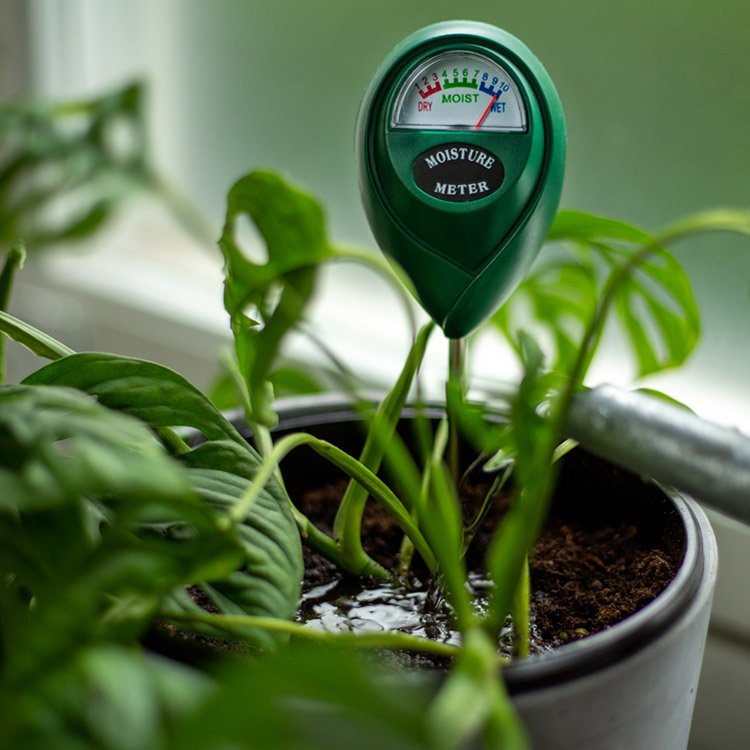Top 10 Benefits of Using a Moisture Meter for Precise Measurements in your house
Top 10 Benefits of Using a Moisture Meter for Precise Measurements in your house
Blog Article
The Ultimate Guide to Moisture Meters: A Comprehensive Review and How They Can Save You Money
Moisture meters offer as vital tools in discovering and monitoring moisture web content in products, aiding in protecting against costly damages and guaranteeing the quality of items. Comprehending the nuances of different kinds of wetness meters, their applications, and the prospective cost-saving advantages they use can be a game-changer for experts and companies alike.
Kinds of Wetness Meters
Different types of dampness meters are readily available for different applications in various industries. One common kind is the pin-type dampness meter, which gauges the electric resistance in between two pins placed right into a material. This type is suitable for wood, drywall, and other building products. Pinless dampness meters, on the various other hand, usage electromagnetic sensing unit plates to check a larger location without creating damages to the product's surface area. Moisture Meter. These meters are excellent for rapidly evaluating wetness degrees in large locations such as floors and walls.

Infrared dampness meters gauge the thermal residential properties of a product to identify its wetness material non-invasively, making them helpful for applications where pin or pinless meters may not be appropriate. Comprehending the various types of moisture meters available can assist industries choose the most suitable device for their specific dampness dimension requirements.

Advantages of Making Use Of Moisture Meters
Wetness meters use very useful advantages in accurately assessing and checking moisture levels in varied materials and settings. One of the key advantages of utilizing wetness meters is the avoidance of potential damage caused by excess wetness.
Moreover, using wetness meters can lead to enhanced power effectiveness. In farming setups, wetness meters play an essential duty in enhancing plant returns by allowing farmers to monitor soil moisture levels and make informed irrigation decisions.
Exactly How to Select the Right Wetness Meter
When choosing a dampness meter, it's important to ensure that the meter is suitable for the certain material you will certainly be screening. Various products have differing electrical residential or commercial properties that can influence wetness readings, so choosing a meter developed for your product is crucial for accurate results. By meticulously assessing these aspects, you can pick a wetness meter that meets your demands and provides exact wetness measurements for your tasks.
Appropriate Strategies for Wetness Meter Usage

Cost Savings Via Moisture Meter Applications
Just how can the strategic use of moisture meters lead to significant price financial savings throughout different sectors? Wetness meters play an important duty in expense savings by protecting against potential damages and making sure quality assurance in different fields. In the agriculture industry, dampness meters aid in determining the optimum time for collecting plants, stopping over-drying or excess wetness that can impact the end product's high quality. This specific surveillance aids farmers prevent unnecessary losses and optimize their yield.
In a similar way, in construction, moisture meters assist prevent pricey problems by finding moisture levels in building products, such as timber or concrete, which can cause structural concerns otherwise dealt with promptly. By identifying trouble areas official statement early on, service providers can take restorative procedures to stay clear of considerable repair services or replacements, inevitably saving time and cash.
Moreover, in the food handling industry, dampness meters have a peek at these guys are essential for checking item quality and making certain conformity with safety guidelines. By accurately measuring wetness content in food items, makers can prevent wasting, preserve freshness, and decrease waste, causing considerable price financial savings. Generally, the strategic application of moisture meters is a valuable investment that can bring about considerable price reductions and boosted effectiveness across various markets.
Final Thought
In final thought, dampness meters are beneficial tools for measuring and finding dampness levels in numerous materials. By utilizing the best wetness meter and adhering to correct methods, users can successfully avoid expensive damages triggered by excess wetness.
Moisture meters serve as indispensable tools in identifying and keeping an eye on moisture content in products, assisting in avoiding costly damages and making certain the high quality of products. Infrared moisture meters gauge the thermal properties of a material to establish its wetness content non-invasively, making them beneficial for applications where pin or pinless meters may not be appropriate.Moisture meters provide indispensable benefits in properly checking and analyzing wetness degrees in diverse products and settings. In agricultural settings, dampness meters play an important role in enhancing crop returns by making it possible for farmers to keep track of dirt dampness levels and make notified watering choices.In conclusion, dampness meters are important tools for discovering and gauging moisture degrees in different materials.
Report this page